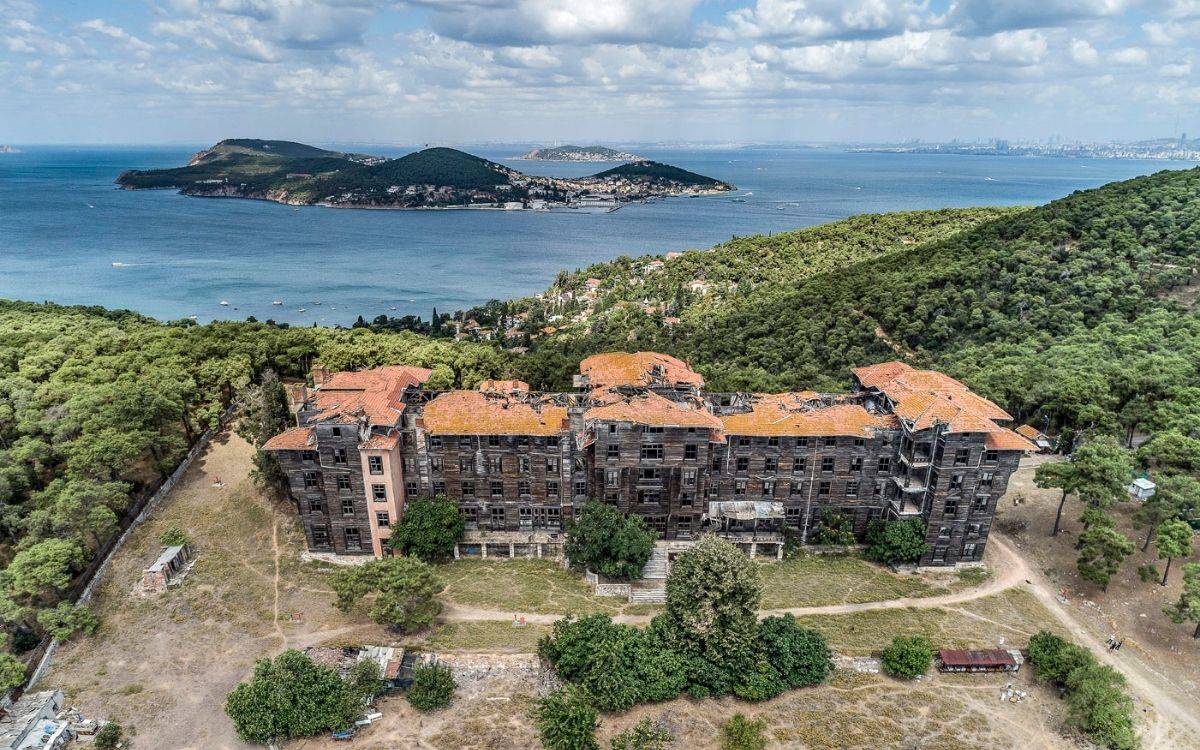The uproar follows a 3 June decision by the Holy and Sacred Synod of the Ecumenical Patriarchate to pursue “eco‑tourism activities” at the long-derelict complex, citing years of unsuccessful attempts to secure restoration funding. According to the Patriarchate, any development would be “fully harmonized with the environment and the architectural character of the Princes’ Islands” and would respect the monument’s historical legacy, with the stated aim of saving it from complete collapse.
The announcement has triggered a wave of objections across Turkey. In a joint call relayed by the Turkish news site Bianet, the initiatives “Adalar Hepimizin” (The Islands Belong to All of Us) and the World Heritage Islands Ecology and Culture Association, Europa Nostra member İlhan Nebioğlu, and author Gündüz Vassaf—among many other names and institutions—appealed to the Patriarchate and public authorities to put “protection first.”
According to the Bianet, “The title deed may belong to the Patriarchate, but this building is not only the Patriarchate’s,” the statement said. “It is a common value for Istanbulites who have worked voluntarily to keep it alive and for the international cultural heritage community.” The signatories called for urgent preventive conservation to stop further decay, the reopening of communication channels with civil society, and the creation of a transparent, participatory, and scientifically grounded roadmap for the site’s future. “The Büyükada Greek Orphanage is the heritage of the world. Demolition is not merely a matter of a building; it is a test of our collective conscience, our memory, and our future. Protection first!”
Critics frame the current plan as a de facto demolition risk, arguing that increased visitor activity at a vast, fragile wooden structure on a heavily forested island could court disaster in an era of escalating climate-related fire threats. Activists note that roughly 60% of the Prince’s Islands are covered by forest. “From where I stand, I can see the building’s collapse,” said writer Gündüz Vassaf. “The responsibility to protect and sustain it belongs to all of us. Turning the orphanage into a hotel with the Patriarchate’s consent is an open invitation to a potential blaze that could ravage Büyükada.”
The orphanage, built in the late 19th century during the Ottoman modernization period, served for decades as a home for orphaned children of the Greek Orthodox community until its operation ceased in 1964. It has not undergone restoration since then and has been left to the elements for much of the intervening decades. International bodies have repeatedly flagged its precarious condition: the World Monuments Fund placed it on its watch list in 2012, and Europa Nostra named it among Europe’s “7 Most Endangered” heritage sites in 2018. Turkey’s National Wood Committee has also issued warnings for years, urging the urgent stabilization and conservation of forests.
While the Patriarchate maintains that carefully designed eco‑tourism could generate the resources needed to save the complex, local stakeholders counter that any adaptive reuse must be preceded by robust emergency measures and shaped through open consultation. They argue that alternatives exist that would keep the site’s identity intact while minimizing risk. In its latest issue, Adalı magazine suggested restoring the garden, infirmary, and school buildings for cultural and educational purposes, opening the grounds as a heritage site, and establishing a small museum—uses that advocates say would be compatible with the island’s character and the building’s history.
The controversy highlights the broader tension between financial imperatives and preserving authenticity at one of Istanbul’s most symbolically charged monuments. The Büyükada Greek Orphanage is not only a feat of 19th‑century timber architecture; it is, for many, a tangible repository of the city’s plural past and a touchstone for shared memory.
For now, the signatories’ demands are precise: stabilize the structure, bring independent experts and local communities into the process, and design any future use with transparency and scientific rigor. As their statement concludes, the fate of the orphanage will serve as a measure of how Turkey balances development pressures with stewardship of a world-renowned heritage site—“a test of our collective conscience.”
Photo: Bianet (The Source)
